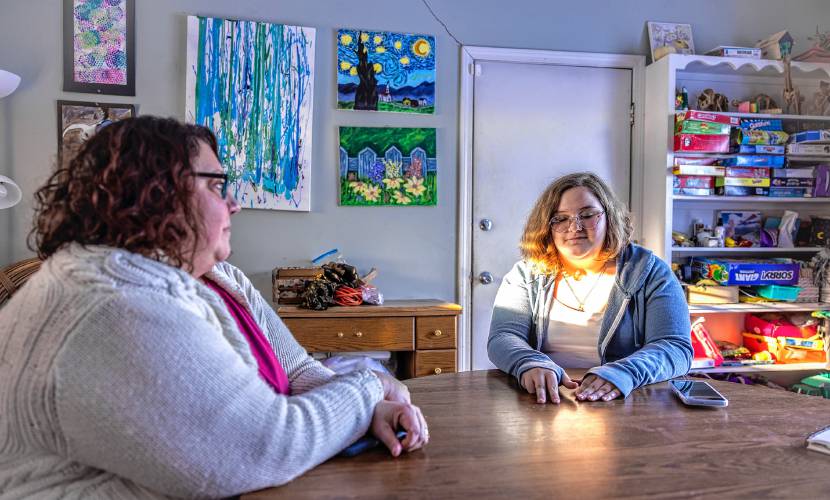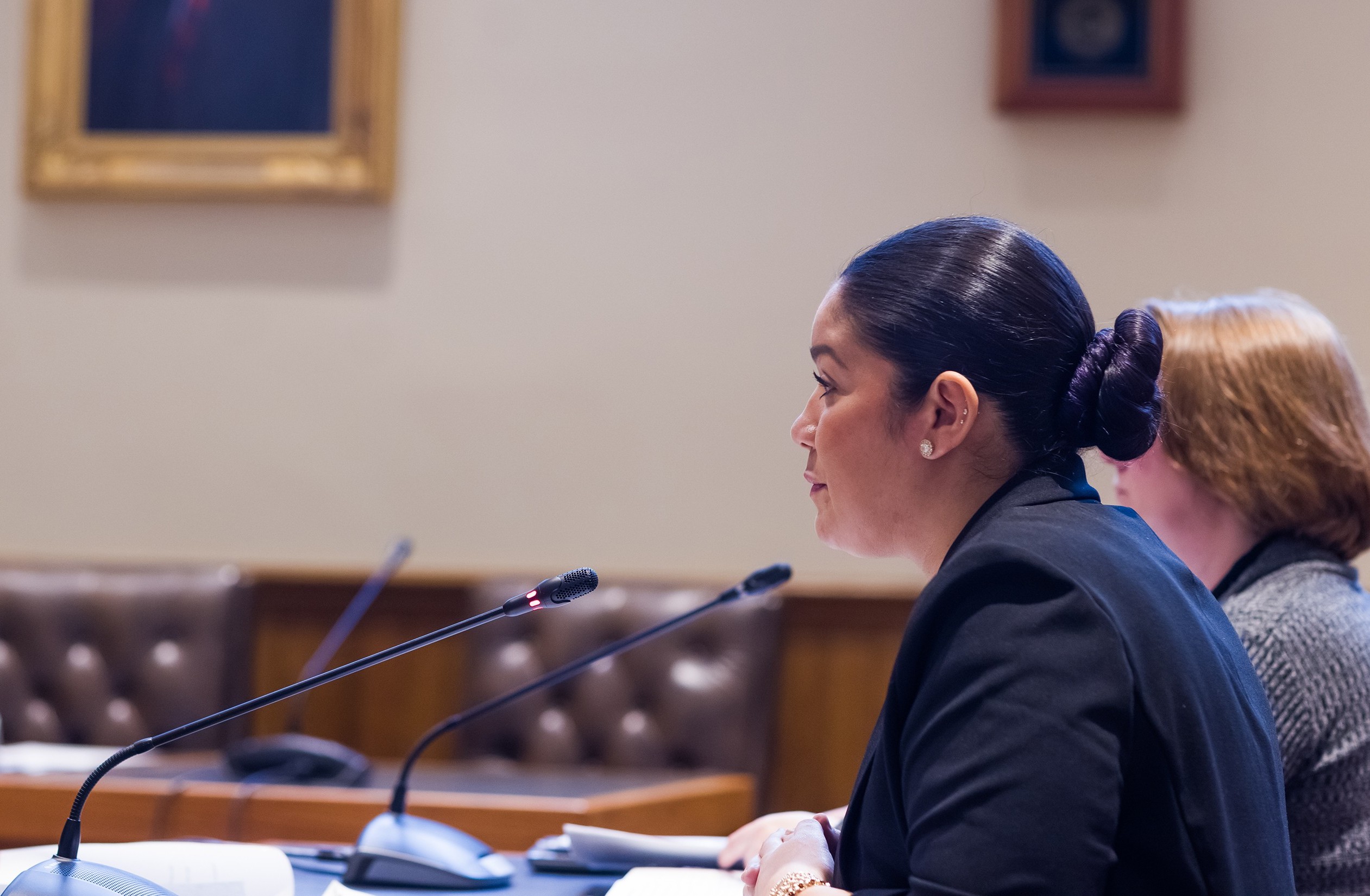

A series about residential care for New Hampshire children
New Hampshire children are sent to live-in residential treatment programs across the country. For kids in foster care, this decision is made by state officials who say they have few other options. Parents looking to help their child in crisis find the same to be true - forcing a hard choice. For years, an independent state agency provided oversight into the facilities, dropping in to meet with kids and raise concerns, when needed. Now it's one of many items on the chopping block, at the whim of state lawmakers looking to cut costs in a tight budget year.
MARCH 22, 2025
'SUPPOSED TO PROTECT ME'
For kids in state custody like Brie Lamarche, New Hampshire’s strained foster care system can lead to placements thousands of miles from home
By MICHAELA TOWFIGHI / Monitor staff

Left: Brie Lamarche , 24, with her cat Blaize at her apartment in Rochester. Top right: Lamarche at her kindergarten graduation.
Bottom left: A memorial card Lamarche's late grandfather, Thomas Greenblatt, which she keeps on her kitchen fridge.
GEOFF FORESTER / Monitor staff
Her case worker said Tennessee would be a new beginning. Brie Lamarche thought so, too.
Ahead of the flight, she bought floral t-shirts from Charlotte Russe, a pair of shorts for the warm weather and snacks at the airport gate.
She didn’t know the program would be her first of seven placements in two years, at the whim of decisions by New Hampshire’s Division of Children, Families and Youth staff.
Lamarche has turned to poetry as a way to process her past. Listen to her read an orginal poem:
MARCH 29, 2025
'LIKE MY CHILD HAD DIED'
For parents looking to help their kids, New Hampshire’s mental health system forces a hard decision
By MICHAELA TOWFIGHI / Monitor staff
March 29, 2025 • Second in a series

Left: Nicole and Arlen Sheaff at home in Exeter. A few years ago, the Sheaffs sought out a residential placement for Arlen.
GEOFF FORESTER / Monitor staff
The top stair was Nicole Sheaff’s bed for months.
She slept with one eye open, waiting for her daughter Arlen to follow the voices in her head that told her to run.
To get out, Arlen would tiptoe down the narrow staircase over her mom – and then past her dad asleep at the bottom stair – and head out the front door.
APRIL 5, 2025
'THERE WAS NO OVERSIGHT'
New Hampshire's Office of the Child Advocate has been a watchdog for children's care. Now, the office is on the chopping block.
By MICHAELA TOWFIGHI / Monitor staff
April 5, 2025 • Third in a series

New Hampshire Child Advocate Cassandra Sanchez presents at a Oversight Commission for Children's Services meeting on March 21. Earlier that week, House lawmakers voted to cut her office from the state budget.
GEOFF FORESTER / Monitor staff
Cassandra Sanchez hadn’t left the parking lot before she hit send on the email.
The two boys living at the Bledsoe Youth Academy in Tennessee needed to return to New Hampshire immediately.
But the independent watchdog agency’s work might be short-lived.
BY THE NUMBERS
New Hampshire approves nearly 100 facilites for children across the country. Use the map below to explore these placements:
Residential care is a costly choice for the state. Here are budget projections:
Kids in New Hampshire's foster care system are more likely to live in residential care than national averages:
About This Series
The Monitor spent six months examining New Hampshire’s system of care for kids both in state custody and those living at home with their parents, looking for help with mental health, emotional and behavioral challenges.
To do so, reporter Michaela Towfighi talked with former foster kids who were in state custody and families who chose to send their children to get live-in help, as well as dozens of lawyers, advocates and nonprofit leaders in New Hampshire and nation-wide.
The Monitor also reviewed a database from the Department of Health and Human Services that provided aggregate counts of kids in state custody from 2020 to 2024 and revealed what placement setting they were in (foster care, kinship or residential) as well as the location of programs. To mask the identity of children, the state suppressed any line that corresponded with less than five children. As a result, all averages of kids in care are estimates, with the assumption that one child was in placement.
The Bureau for Children’s Behavioral Health also provided a list of all contracted, certified and state-owned residential facilities as of November 2024. The database provided the “level” of care, the date of the most recent certification from the state, the last visit from New Hampshire personnel and address of the facility.
The Monitor requested all certification and contractual documents from providers the state works with. The Monitor reviewed recertification documents for five facilities, as well as hundreds of pages in state contracts with providers. Requests for documents from all facilities were not met before publication date.
The Monitor also reviewed federal data from the Adoption and Foster Care Analysis and Reporting System which provides annual data on foster care in each state as well as nation-wide.
Towfighi reported this series through USC Annenberg Center for Health Journalism’s 2024 Data Fellowship.

Last updated April 5, 2025